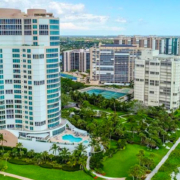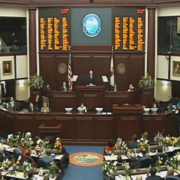In gated communities gate guards are usually not security guards
Some people who live in gated communities get a false sense of security that they are “safe” because they live behind the gates and there are “security guards” at the gate. They probably don’t understand that their community is just providing gate guards to control access through the front gate but they do not guarantee any “security” is being provided.
If a resident gives the guard house the name of a friend to be allowed access and the friend is actually a thief and then enters and steals from a neighbor, the gate guard did nothing wrong in allowing the access to the thief that was requested by the resident.
It is important to remind residents in gated communities that the Association and the Gate Guard Company is there to check who is permitted by the residents to come and go and not to provide or promise “security”. Broken gates or fences should be repaired and residents should promptly be informed if and when crimes are reported to occur in the community.
Some may remember a few years back there was a rash of home invasions in local gated communities. It was determined that some thief’s prefer gated communities because less people artearound and they can walk in through the golf courses from neighboring roads and enter through the rear of the homes.
It is interesting to look at a few cases over the years that have or have not found liability of a homeowners’ or condominium association when crimes were committed in gated communities by outsiders.
In the 1983 case of Admiral’s Port Condo v. Feldman, the Feldmans were mugged on the Northeast parking lot of the Condominium. The Association had established security procedures involving ingress and egress to the buildings. Prior to this incident, no crimes against persons had been reported on Admiral’s Port property. The only evidence presented of violent crimes occurred a substantial distance away from the Condo. The Court found “no foreseeability” and no evidence the Association breached any duty owed to the Feldmans with respect to the security measures that it did employ.
Conversely, in Vazquez v. Lago Grande HOA decided in 2004, the gate guards were specifically warned by the owner not to let the ex-husband of the owner’s guest in because of his potential dangerousness. The ex-husband then walked into the community past the security guards on duty and shot and killed the ex-wife. In this case the Developer advertised the complex on the basis of security and collected assessments for safety provisions offered by the complex. The President of the HOA verified that they were there to protect the safety of the residents and guests and they had the right expect the complex would be safe “as promised”. The Board gave guard gate post orders how to screen people for entry but there were numerous complaints made to the Association that visitors were not being logged in and were entering the complex without authorization- especially on foot. The Plaintiffs were awarded 4 million. The Court held that once the Association undertook obligations of providing security, it had to do so.
Last, in the 2015 case of Sanders v. ERP Operating Limited Partnership, the Sanders were shot to death inside their apartment that was marketed as a Gated Community. Three years prior to the murders, the gate was broken resulting in an armed robbery and assault. The gate was broken two months prior to the murders and twenty criminal incidents occurred within a three year period and none were reported to the residents. The jury awarded $4.5 million. The Court ruled that the jury need to decide whether the inoperable gate was a proximate cause of the deaths. Even if a victim voluntarily opened a door for the assailants that did not negate the apartment complex’s breach of duty by allowing the inoperable gate which was intended to limit access to only those authorized.





